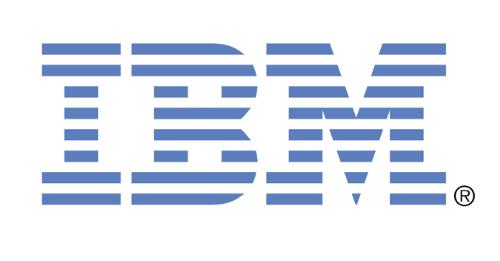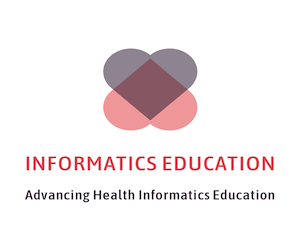 About a year and a half ago I wrote I Hate Apps, expressing my concerns that apps had outlived their usefulness due to how they are cluttering up our devices, and found I wasn't alone in this attitude. Now Facebook is doing something about it, with their vision that they can use "bots" within their Messenger app to eliminate the need for many standalone apps. Indeed, as David Marcus, the head of messaging at Facebook, told Wired: "Everyone wanted websites when the web was launched. And then everyone wanted apps. This is the start of a new era"...
About a year and a half ago I wrote I Hate Apps, expressing my concerns that apps had outlived their usefulness due to how they are cluttering up our devices, and found I wasn't alone in this attitude. Now Facebook is doing something about it, with their vision that they can use "bots" within their Messenger app to eliminate the need for many standalone apps. Indeed, as David Marcus, the head of messaging at Facebook, told Wired: "Everyone wanted websites when the web was launched. And then everyone wanted apps. This is the start of a new era"...
 The Office of the Chief Technology Officer’s HHS IDEA Lab has announced the seventh cohort of teams selected for the HHS Ignite Accelerator. The HHS Ignite Accelerator is a program that spurs innovative problem-solving across the Department by encouraging and enabling HHS staff (at all levels) to experiment with novel means for addressing key Departmental challenges...
The Office of the Chief Technology Officer’s HHS IDEA Lab has announced the seventh cohort of teams selected for the HHS Ignite Accelerator. The HHS Ignite Accelerator is a program that spurs innovative problem-solving across the Department by encouraging and enabling HHS staff (at all levels) to experiment with novel means for addressing key Departmental challenges...
 n the immediate aftermath of disasters, timely and effective information is critical for the decision-making process. Information and Communication Technologies (ICTs) play a significant role in mitigation, preparedness, response, and rehabilitation by facilitating the flow of vital information in a timely manner. To deliver and deploy telecommunications / information and communication resources (transportable, easy to deploy and reliable systems that are non-exclusive) in a timely manner in the event of disasters, the ITU has designed the ITU Framework for Cooperation in Emergencies (IFCE). Innovative technologies such as robotics, drone technology, GIS, and emerging technologies like artificial intelligence (AI), the Internet of Things (IoT), cloud computing and Big Data are transforming the complex process of disaster management.
n the immediate aftermath of disasters, timely and effective information is critical for the decision-making process. Information and Communication Technologies (ICTs) play a significant role in mitigation, preparedness, response, and rehabilitation by facilitating the flow of vital information in a timely manner. To deliver and deploy telecommunications / information and communication resources (transportable, easy to deploy and reliable systems that are non-exclusive) in a timely manner in the event of disasters, the ITU has designed the ITU Framework for Cooperation in Emergencies (IFCE). Innovative technologies such as robotics, drone technology, GIS, and emerging technologies like artificial intelligence (AI), the Internet of Things (IoT), cloud computing and Big Data are transforming the complex process of disaster management. Some might not know it, but the US military plays a key role in US disaster response strategy and, accordingly, the Department of Defense (DoD) has prioritized its disaster response mission and is investing heavily towards increasing its capabilities and effectiveness. Technology is a big part of all modern DoD missions, and disaster response is no different. The most promising and transformative technology on the horizon for our future, and for the future of the DoD, is Artificial Intelligence (AI). So how exactly will the DoD leverage Artificial Intelligence technologies in order to meet the demands of the disaster response mission? Is a new Center of Excellence created by DoD, called the Joint Artificial Intelligence Center (JAIC).
Some might not know it, but the US military plays a key role in US disaster response strategy and, accordingly, the Department of Defense (DoD) has prioritized its disaster response mission and is investing heavily towards increasing its capabilities and effectiveness. Technology is a big part of all modern DoD missions, and disaster response is no different. The most promising and transformative technology on the horizon for our future, and for the future of the DoD, is Artificial Intelligence (AI). So how exactly will the DoD leverage Artificial Intelligence technologies in order to meet the demands of the disaster response mission? Is a new Center of Excellence created by DoD, called the Joint Artificial Intelligence Center (JAIC).  Doctors will one day be able to more accurately predict how long patients with fatal diseases will live. Medical systems will learn how to save money by skipping expensive and unnecessary tests. Radiologists will be replaced by computer algorithms. These are just some of the realities patients and doctors should prepare for as “machine learning” enters the world of medicine, according to Dr. Ziad Obermeyer, an assistant professor at Harvard Medical School, and Dr. Ezekiel Emanuel of the University of Pennsylvania, who recently coauthored an article in the New England Journal of Medicine on the topic...
Doctors will one day be able to more accurately predict how long patients with fatal diseases will live. Medical systems will learn how to save money by skipping expensive and unnecessary tests. Radiologists will be replaced by computer algorithms. These are just some of the realities patients and doctors should prepare for as “machine learning” enters the world of medicine, according to Dr. Ziad Obermeyer, an assistant professor at Harvard Medical School, and Dr. Ezekiel Emanuel of the University of Pennsylvania, who recently coauthored an article in the New England Journal of Medicine on the topic... On Monday, Humana and Microsoft Corp. announced a strategic partnership focused on building modern health care solutions for Humana members aimed at improving their health outcomes and making their health care experiences simpler to navigate. Using the power of Microsoft's Azure cloud, Azure AI, and Microsoft 365 collaboration technologies, as well as interoperability standards like FHIR, Humana will develop predictive solutions and intelligent automation to improve its members' care by providing care teams with real-time access to information through a secure and trusted cloud platform.
On Monday, Humana and Microsoft Corp. announced a strategic partnership focused on building modern health care solutions for Humana members aimed at improving their health outcomes and making their health care experiences simpler to navigate. Using the power of Microsoft's Azure cloud, Azure AI, and Microsoft 365 collaboration technologies, as well as interoperability standards like FHIR, Humana will develop predictive solutions and intelligent automation to improve its members' care by providing care teams with real-time access to information through a secure and trusted cloud platform. IBM today announced a new Database-as-a-Service (DBaaS) toolkit on Power Systems optimized for open source databases, including MongoDB, EDB PostgreSQL, MySQL, MariaDB, Redis, Neo4j, and Apache Cassandra to help deliver more speed, control, and efficiency for enterprise developers and IT departments. The new platform gives database administrators and developers the ability to easily deploy a fully configured private cloud with automated provisioning for open source database services...
IBM today announced a new Database-as-a-Service (DBaaS) toolkit on Power Systems optimized for open source databases, including MongoDB, EDB PostgreSQL, MySQL, MariaDB, Redis, Neo4j, and Apache Cassandra to help deliver more speed, control, and efficiency for enterprise developers and IT departments. The new platform gives database administrators and developers the ability to easily deploy a fully configured private cloud with automated provisioning for open source database services... The tranSMART Foundation, a non-profit organization providing a global, open-source, open-data knowledge management platform for scientists to share pre-competitive translational research data, and IBM (NYSE: IBM), today announced their collaboration and the general availability of the tranSMART platform (version 16.2) on IBM Power8 servers. The translational research platform is running on IBM Power8 servers at the tranSMART Foundation's Center of Excellence at the University of Michigan. This new implementation allows users to take advantage of the optimized performance enabling them to more quickly and easily load and analyze data...
The tranSMART Foundation, a non-profit organization providing a global, open-source, open-data knowledge management platform for scientists to share pre-competitive translational research data, and IBM (NYSE: IBM), today announced their collaboration and the general availability of the tranSMART platform (version 16.2) on IBM Power8 servers. The translational research platform is running on IBM Power8 servers at the tranSMART Foundation's Center of Excellence at the University of Michigan. This new implementation allows users to take advantage of the optimized performance enabling them to more quickly and easily load and analyze data... One of the most thought-provoking articles I've read lately is Tom Vanderbilt's Why Futurism Has a Cultural Blindspot in Nautilus. In it, he discusses how our technological visions of the future seem to do much better on predicting the technology of that future than they do the culture in which they will be used. As he says, "But when it comes to culture we tend to believe not that the future will be very different than the present day, but that it will be roughly the same. Try to imagine yourself at some future date.... Chances are, that person resembles you now."
One of the most thought-provoking articles I've read lately is Tom Vanderbilt's Why Futurism Has a Cultural Blindspot in Nautilus. In it, he discusses how our technological visions of the future seem to do much better on predicting the technology of that future than they do the culture in which they will be used. As he says, "But when it comes to culture we tend to believe not that the future will be very different than the present day, but that it will be roughly the same. Try to imagine yourself at some future date.... Chances are, that person resembles you now." Informatics Education was created in 2007 as the business entity in support of the first edition of our textbook Health Informatics: Practical Guide for Healthcare and Information Technology Professionals. Newer editions were published every 1-2 years with the seventh edition published in June 2018...Since the inception of Informatics Education, the vision has been to support informatics students and faculty.
Informatics Education was created in 2007 as the business entity in support of the first edition of our textbook Health Informatics: Practical Guide for Healthcare and Information Technology Professionals. Newer editions were published every 1-2 years with the seventh edition published in June 2018...Since the inception of Informatics Education, the vision has been to support informatics students and faculty.